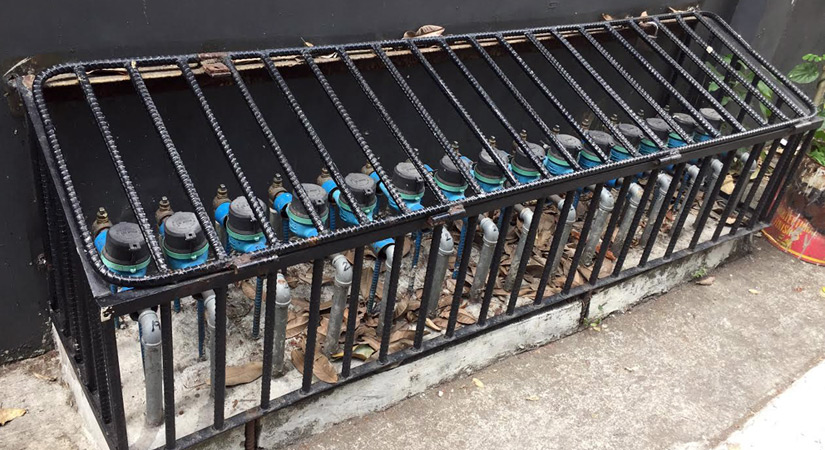By Vann Marlo M. Villegas, October 4 2019; Business World
https://www.bworldonline.com/water-firms-appeal-sc-ruling-on-p1-8-b-fine/
Image Credit to Business World
METRO MANILA’s water service concessionaires have asked the Supreme Court to reverse its ruling imposing fines totalling close to P2 billion against them and Metropolitan Waterworks and Sewerage Systems (MWSS) for violations of Republic Act No. 9275, or the Philippine Clean Water Act of 2004.
The high court on Aug. 6 upheld the decision of the Court of Appeals that found the regulator and the concessionaires liable for violating Section 8 of the law.
Maynilad Water Services, Inc. and Manila Water Company, Inc. are each jointly liable with MWSS to pay P921.5 million covering the period May 7, 2009 to Aug. 6, the date of promulgation of the Supreme Court decision. They are also fined the initial amount of P322,102 per day subject to 10% increase every two years until full compliance with the law.
This stemmed from the fine imposed by the Department of Environment and Natural Resources (DENR) against them for failure within five years after the law took effect in early 2004 to install and maintain wastewater treatment facilities.
The water concessionaires elevated their cases to the appellate court in 2012, which dismissed their appeals.
In its 56-page motion for reconsideration, Manila Water said it complied with the law as its obligation is “simply to connect sewage lines existing at the time of the effectivity of the law to then-available sewerage systems” within five years from the law’s coming into force.
Manila Water asked that the case be referred to Court of Appeals or the DENR for determination of factual issues.
It noted that under, its concession agreement with MWSS in 1997, it is required to offer supply sewerage services and make new connections within a period of 40 years. “However, the decision interprets Section 8 of the Clean Water Act to mean that petitioner Manila Water must unconditionally comply with all its obligations under the concession agreement within five years from the law’s effectivity,” Manila Water said. “In other words, the decision folded-in the 40-year period for petitioner Manila Water to comply with its obligations under the concession agreement to a mere five (5) years, when the said period under Section 8 of the Clean Water Act was only intended for the interconnection of sewage lines to sewerage systems existing and available in 2004.”
It said that by 2009, it connected existing sewage lines of 61,166 out of 62,833 establishments, equivalent to 97% interconnection.
Maynilad, in its 158-page motion for reconsideration, said that the court failed to reconcile its ruling with its 2008 decision on the rehabilitation of Manila Bay which gave MWSS and the concessionaires until 2037 to perform its obligations under Section 8 of the law.
“Maynilad respectfully submits that this Honorable Court could not, and should not, shy away from its duty of obeying the Manila Bay Judgment (insofar as it gives the MWSS and the concessionaires until 2037 to complete the obligations under Section 8 of the CWA) or, at the very least, of harmonizing the same with this Honorable Court’s finding,” it said.
It also said that it did not violate Section 8 of the law for not being able to comply within five years, saying the “inevitable conclusion would still be that the law only requires a continuing obligation” on the part of concessionaires to interconnect existing lines, but not that it shall be completed within the five-year period provided.
The concessionaire also said that the resolution in Manila Bay affirmed that the obligation to install wastewater treatment facilities is a “continuing one” and is not expected to have been fully completed in five years.
It asked the court to conduct an oral argument and reverse its decision, and to remand the case to the DENR-Pollution Adjudication Board for reception of evidence on factual and technical issues.
It also said that it should not be held liable to pay fines as the Philippine Clean Water Act punishes polluters, and assuming that it failed to comply with installment of treatment facilities, it still does not constitute active pollution.
Maynilad said that the fine, which it claimed is intended to be applied to polluters and not to concessionaires, is “so confiscatory and punitive” and amounts to a criminal penalty.
The company’s right to due process was also violated as it was deprived of the opportunity to address the basis of the charges and liabilities against it.
Maynilad also said that to put up sufficient wastewater facilities to hit 100% coverage by 2022, it would have to spend more than P149 billion and would result in an increase in tariff by P11.47 per cubic meter, “which is more than twice the tariff increase of P5.37 for 2018 to 2022,” or almost P49 per cubic meter.
“This sudden increase would cripple common Filipinos’ access to water, as many would be unable to shoulder such high financial burden, especially in these difficult times where they are already dealing with skyrocketing prices of other equally important necessities like food, electricity, and gasoline,” it said. — Vann Marlo M. Villegas

